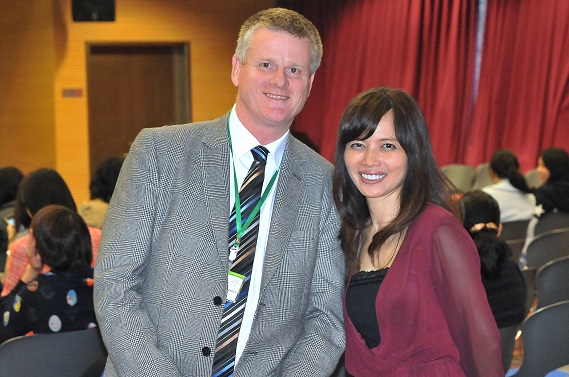
On the evening of March 28, 2016, YK Pao School’s Primary Division welcomed Columbia University Adjunct Assistant Professor Dr Ya-Ning Hsu, who delivered a parent workshop on bilingual immersion education. The workshop was open to all parents.
Dr Ya-Ning Hsu received both her MA in TESOL (Teaching English as a Second Language) and EdD in Bilingual/Bicultural Education from Teachers College, Columbia University. She is currently a researcher, scholar, professor and teacher trainer and serves as Director for International Pre-graduate Program (IPGP) at Teachers College. Her research interests include bilingualism, bilingual/dual language program design and implementation, ESL (English as a Second Language), and literature-based reading curriculum. Dr Hsu is also working with Pao School’s bilingual working group to develop the school’s Dual Language Immersion Programme.
Dr Hsu began with an introduction to the history and development of dual language education before discussing its many benefits, including improved intellectual growth and cognitive development, enhanced cultural awareness as well as a greater range of career opportunities. Dr Hsu emphasised that Pao School’s whole person education model was not simply a slogan, but an essential component of the school’s bilingual programme that goes hand in hand with its multicultural environment, both of which are crucial to the development of language skills. The effectiveness of Pao School’s bilingual programme lies in the fact that it does not simply incorporate English language into its curriculum, but that it helps students develop confidence and proficiency by integrating both Chinese and English across many disciplines, including politics, geography, economics and science.
Dr Hsu followed her presentation with a question-and-answer session for attendees, lending her many years of expertise in providing practical and informative advice for parents considering enrolling their children in a bilingual programme. When asked how parents can assist with bilingual education in the home, Dr Hsu explained that they should pay attention to key factors that affect cognitive development, including environmental, parental interaction, nutrition, life experience, sleep and peer interaction. She also emphasised that helping children develop bilingualism and multilingualism requires time and some concerted effort – children who are developing their language skills need positive reinforcement, opportunities to showcase their abilities, and above all, a safe space to practice their skills.